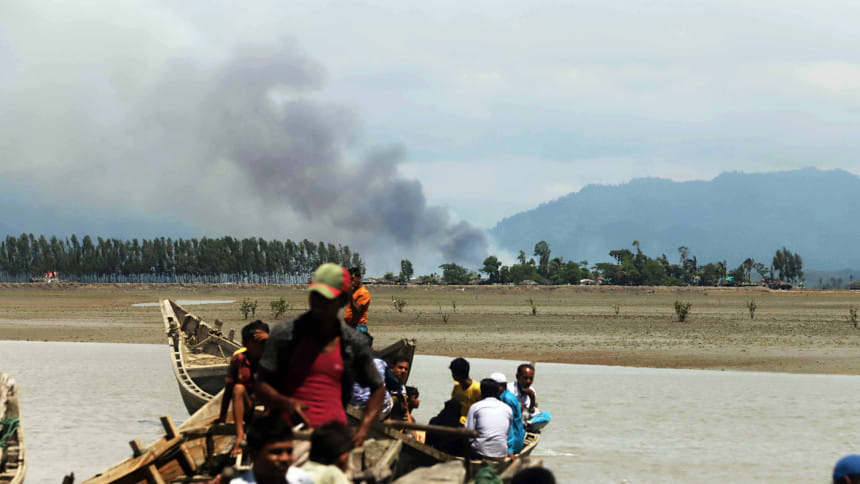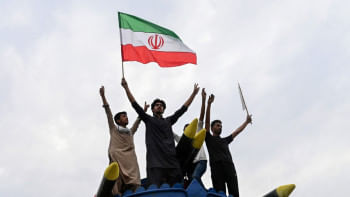Genocide against Rohingyas not abating

The genocide against the Rohingyas shows no sign of abating in Myanmar, the Burmese Rohingya Organisation UK (BROUK) said in a new briefing yesterday.
It said the Myanmar military continues to subject the Rohingyas to a vicious pattern of abuse and extortion in the Rakhine State, where Rohingyas are kept in what amounts to an open-air prison, creating intolerable living conditions.
Since the start of this year, at least 15 Rohingya, including nine infants and young children, have died as a direct result of onerous and illegal travel restrictions preventing access to medical care, said BROUK President Tun Khin in a statement.
It comes at a time that coincides with Myanmar's duty to report to the International Court of Justice (ICJ) on how it is preventing genocidal acts against the minority group in Rakhine State.
The ICJ, as part of the genocide case brought by The Gambia against Myanmar, in January 2020 imposed "provisional measures" ordering Myanmar to prevent and halt genocidal acts against the Rohingyas.
Myanmar is required to report periodically to the court on its compliance with these measures, with a report due by May 23, 2021. The military coup in Myanmar on February 1 added much uncertainty around the case.
Against this backdrop, it is unclear if the military dictatorship intends to engage with the ICJ, or if it will submit a report. Myanmar's agent in the ICJ case, former State Counsellor Aung San Suu Kyi, has also been placed under house arrest by the Tatmadaw.
BROUK has called on the international community to redouble efforts to hold the Myanmar military to account for atrocity crimes.
"The National Unity Government should throw its full weight behind international justice efforts, and submit its own report to the ICJ spelling out how it will end persecution against the Rohingyas."
"The military coup in Myanmar has again shown the Tatmadaw's brutality and callousness to the world. At the same time, the genocide against the Rohingyas continues at pace, putting the very existence of our people at risk," said Tun Khin.
"Authorities in Myanmar have taken no meaningful steps to amend the laws and policies underpinning the genocide. What is more, abuse, extortion and humiliation of Rohingya continue on a daily basis. The military coup has made the situation even more precarious."
Severe internet restrictions in effect off-and-on in Rakhine State since June 2019, have continued since the coup, affecting all aspects of Rohingyas' lives.
"The Rohingya continue to live a hellish existence in Rakhine State. The restrictions on all aspects of our lives are clearly designed to make our lives so unbearable that we have no option but to flee, said Tun Khin.
"It is unconscionable that nine young children have recently lost their lives because of the conditions they were living in and the denial of proper medical care."
Ending the Rohingya genocide and building a democratic Myanmar are closely linked – both involve stopping the Tatmadaw's reign of terror once and for all, he said.
"The international community must now more than ever take genuine action to make this a reality. The human cost of failure is too high."
Reuters adds: Myanmar's junta leader Min Aung Hlaing cast doubt on the return of hundreds of thousands of Rohingya Muslim refugees who fled to Bangladesh in comments made in his first interview since taking power in a Feb 1 coup.
Min Aung Hlaing was asked by Chinese-language Phoenix television whether the Muslims could be allowed back to Rakhine State - from where most fled an army crackdown in 2017 that UN investigators said had "genocidal intent".
"If it doesn't comply with Myanmar's laws, what else is there to consider? I don't believe there is any country in the world that would go beyond their own country's refugee laws to accept refugees," Min Aung Hlaing responded, according to a transcript of the interview.
When asked whether that meant vocal international appeals on behalf of the Rohingya were to no avail, he nodded.
Min Aung Hlaing, who headed the army in 2017 when some 700,000 Rohingya fled from advancing troops, reiterated the view of nationalists in Buddhist-majority Myanmar that the Rohingya are not one of its ethnic groups.

 For all latest news, follow The Daily Star's Google News channel.
For all latest news, follow The Daily Star's Google News channel. 



Comments